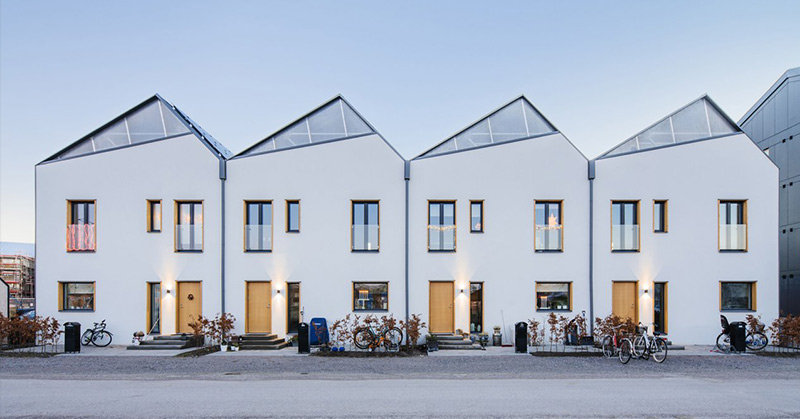Being environmentally conscious doesn’t guarantee the money needed to become “green.” Although recycling and choosing to walk instead of driving makes a difference in reducing one’s carbon footprint, many people who desire to use only healthy renewable sources of energy sometimes feel limited due to cost and accessibility. For this neighborhood in Örebro, Sweden, this reality is about to change.
Stockholm-based Street Monkey Architects designed zero-energy homes that are well-insulated, and contain a ventilation system that works to retain heat efficiently. They constructed these row-homes in Örebro using passive building principles and solar panels to harness energy. The best part is that these family homes are relatively affordable.
The Street Monkey Architects
Street Monkey Architects is named by their founding architect, Cage, who trained in Parkour to get to know Stockholm when he first moved there. He explained that he “trained like monkeys, running, crawling, and jumping everywhere.”
That’s how the name was born. He had thought to himself, “if we see ourselves as animals, without all the trappings of culture and with primal needs for stimulation, movement, light and air, then maybe we can design in a more free and robust way and if we see ourselves as animals, then maybe our dependency on the planet is closer and we can design in that space as well.” [1]
Innovative and Self-Powered Swedish Homes
These houses are powered by rooftop solar panels and the rest is supplemented by on-site batteries that store extra energy that can be sold back to the grid. The energy consumption is measured regularly and adjusted based on the family’s needs.
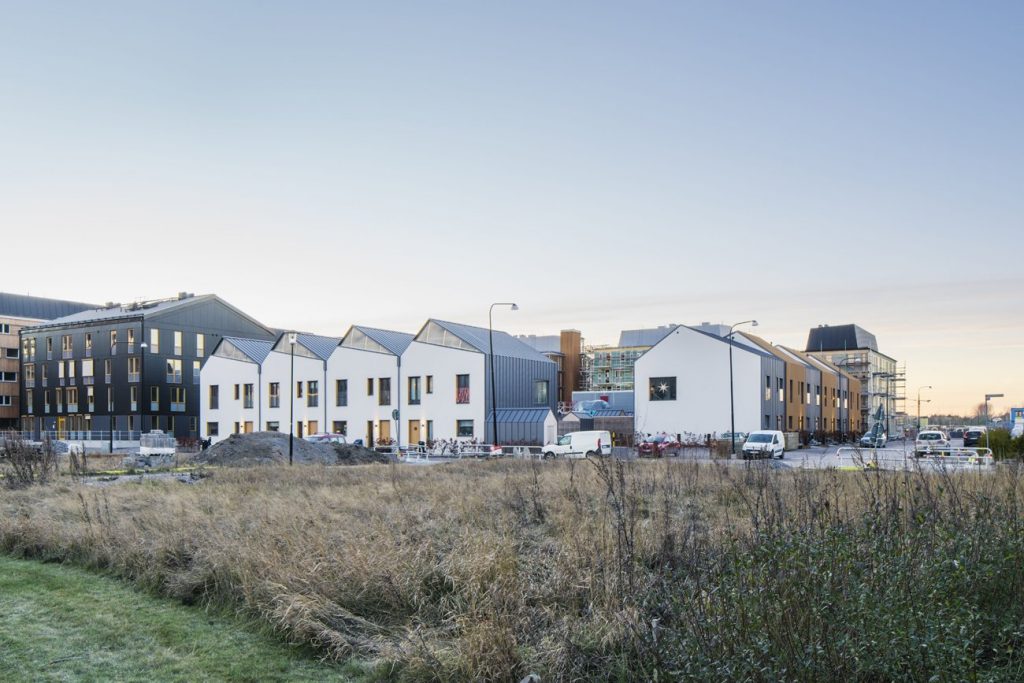
Each home is two stories high and measures at 1,600 square feet and is built from six factory-made modules that were erected with finished interiors. The designers chose a combination of materials for these buildings — wood, steel, and plaster. After the builders construct the façade, they finish the seams between the modules. Of course, the houses’ roofs are laden with solar panels that face the southern sun. The architects formed custom ridgelines and angles for the panels depending on where the houses would be located and what direction the front would face. [2]
Despite the uniformity of the houses’ design, they look slightly different to make each one unique for its residents. Some sport white plaster facades, others dark, silvery steel, and some wooden slating. Therefore, although the houses are almost completely uniform in shape and style, the colors and textures of their exteriors stand out to give its occupants a sense of individuality.
The interior is open and sunlit. The ground floor holds the kitchen, dining room, and living room, and two glass doors that open to the terrace. Up the steel stairs that are held by vertical wires are three bedrooms, a large bathroom, and a family room.
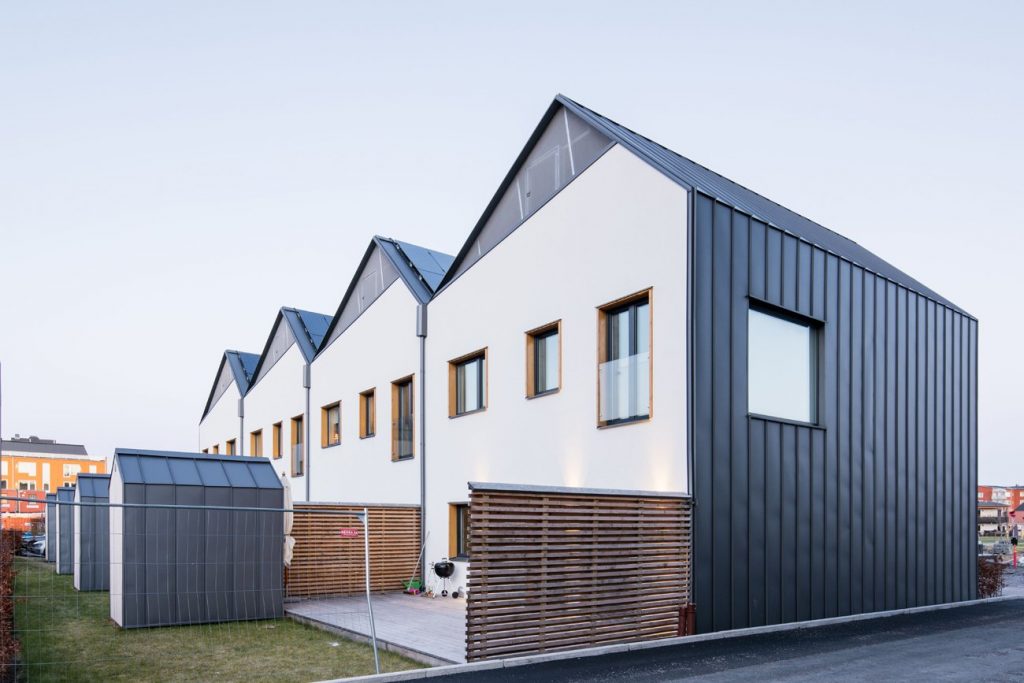
Read: Scientists Create Liquid Fuel That Can Store The Sun’s Energy For Up to 18 Years
Inefficient High-Levels of Housing in Sweden
It’s no wonder that heating takes a high proportion of housing energy in Sweden, which is why these homes were built to be as insulated as possible. Sweden’s housing sector accounts for 40% of its energy usage, which made the government examine its energy efficiency to help negate this impact all while making this type of housing both accessible and affordable to families on a tight budget. Multi-dwelling buildings, such as Street Monkey Architects innovation, are a particular point of interest as a solution for this issue. [4]
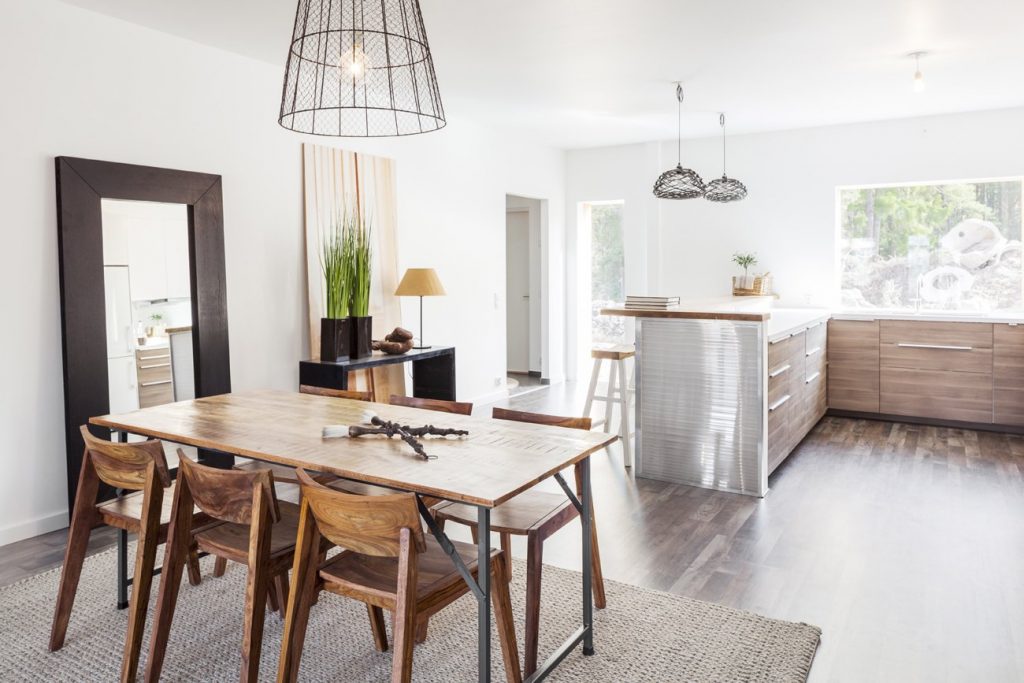
Fortunately, Sweden is an overall very environmentally-friendly country. More than half of the energy used there comes from renewable sources, although their goal is to be 100% renewable by 2040 through a combination of power from water, wind, the sun, or any other naturally replenishable source. They manage high energy consumption with low carbon emissions, a great feat. For comparison, the average American releases about four times as much carbon dioxide a year into the atmosphere as the average Swede. [5]
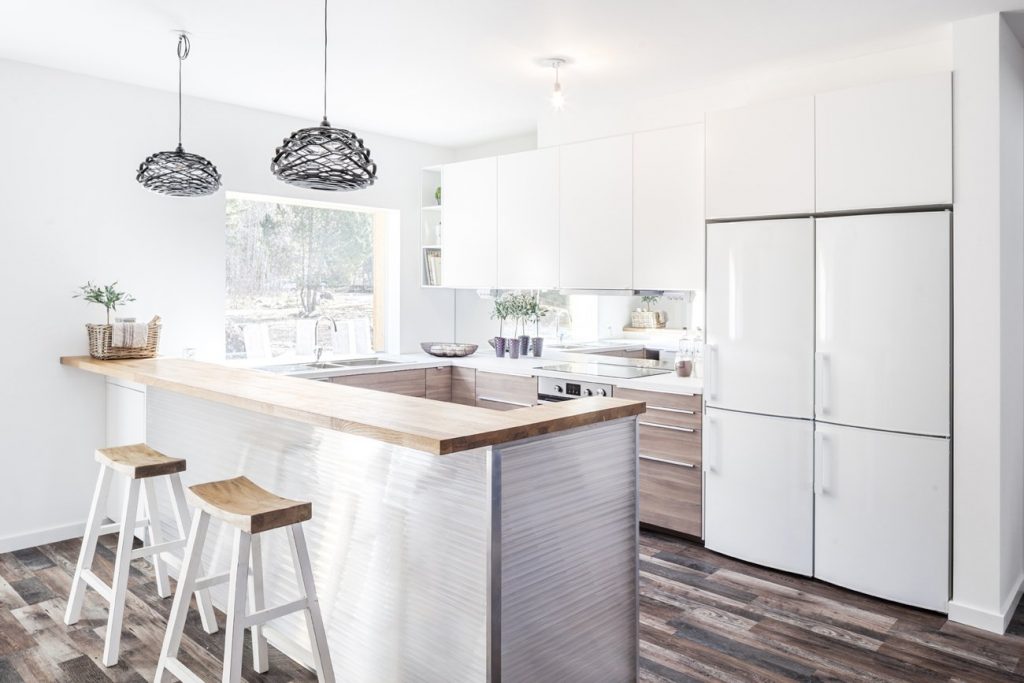
In order to reach this goal of eliminating carbon dioxide emissions, Sweden is working on creating self-sufficient housing for its citizens, but they must be affordable to those making low-income or are unemployed. This challenge is one of many this country faces to achieve 100% environmentally-friendly energy, but it already surpassed its 2020 goal of reaching 50% back in 2012, so there are high hopes for Sweden completing this goal and setting an example for the rest of the world. [6]
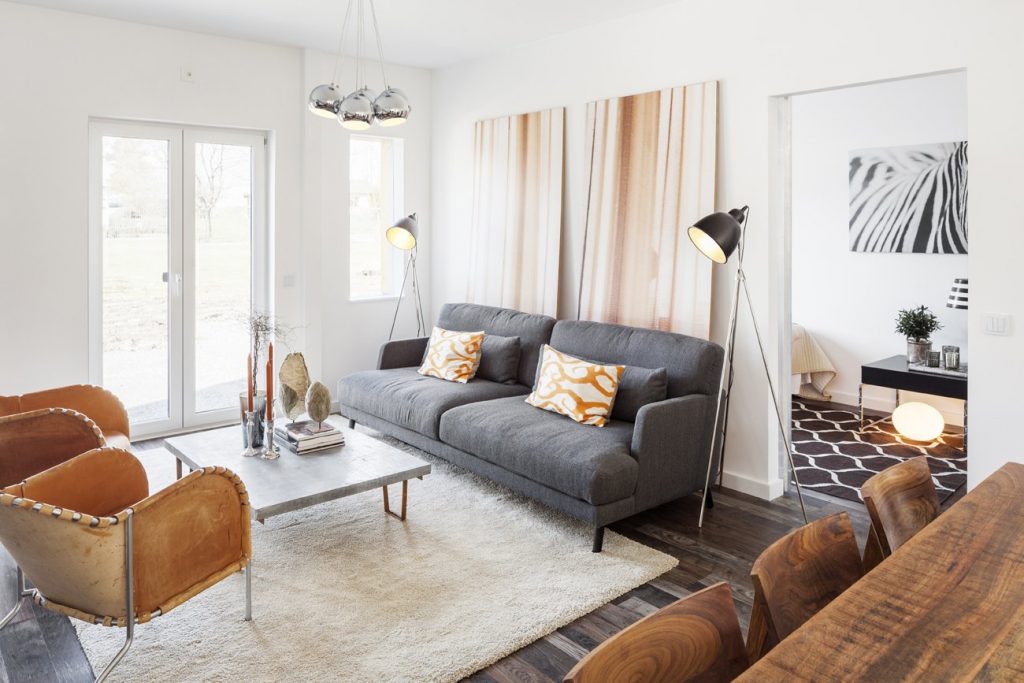
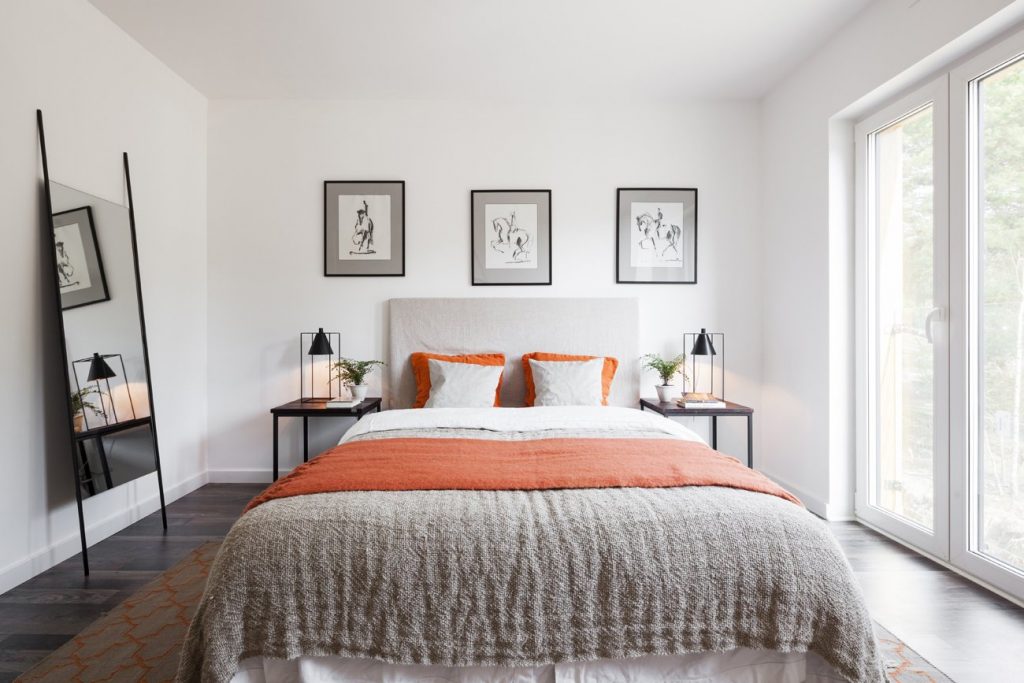
Keep Reading: How Rwanda Became One of the Cleanest Nations on Earth
- Street Monkey Architects. https://streetmonkey.se/
- Duncan Nielsen. January 28, 2020
- Katherine Gallagher. Modular homes in Sweden are specially designed for solar panels. Inhabitat. https://inhabitat.com/modular-homes-in-sweden-are-specially-designed-for-solar-panels/ January 22, 2020
- Paula Femenias and Anna-Lisa Lindén. Energy Efficiency in the Housing Sector – The Swedish Case. Research Gate. https://www.researchgate.net/publication/286035381_Energy_Efficiency_in_the_Housing_Sector_-_The_Swedish_Case January 2010
- Sweden. ENERGY USE IN SWEDEN. https://sweden.se/nature/energy-use-in-sweden/[6] Elisabeth Braw. Swedish city builds ‘passive houses’ as part of ambitious CO2 reduction targets. The Guardian. https://www.theguardian.com/sustainable-business/sweden-passive-housing-co2-reduction-targets January 23, 2014
